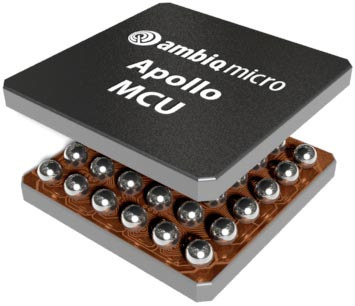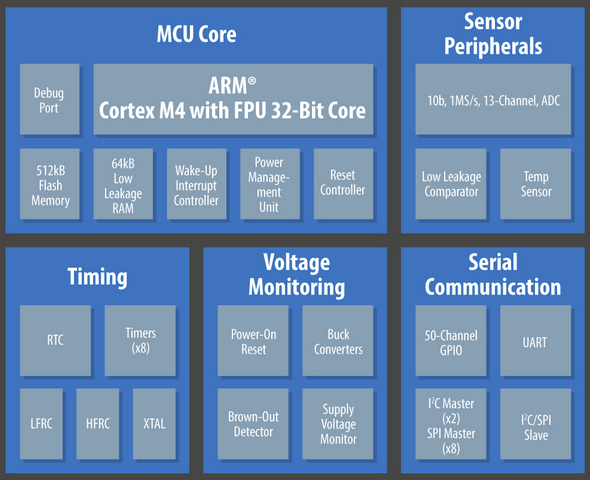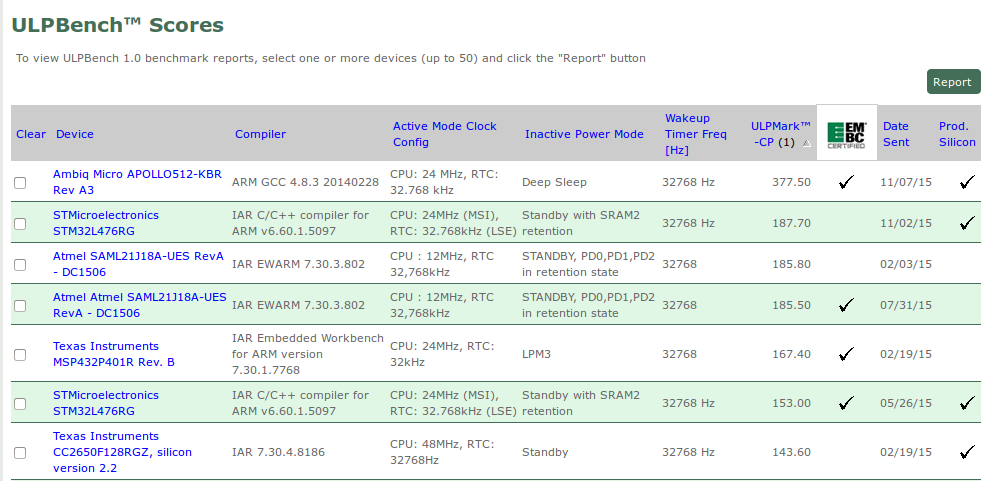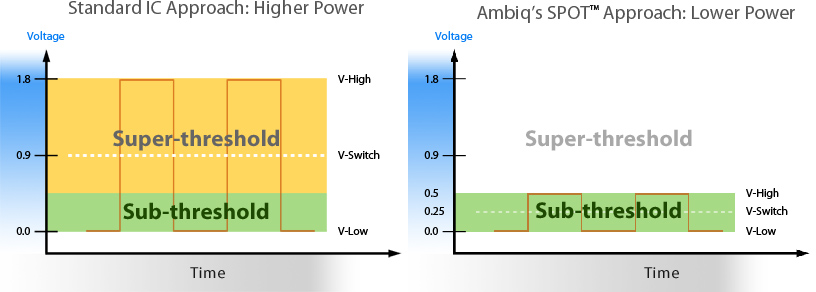 Ambiq Micro is a US company founded in 2010 that focuses on “extremely low power” semiconductors leveraging their patented Subthreshold Power Optimized Technology (SPOT) platform. Earlier this year, they announced their first low power Cortex-M4F MCU Apollo family with claims of 5 to 10 times lower power consumption compared to other micro-controllers with the same performance. According to an EETimes article, they’ve at least partially backed their claims with a live demonstration at ARM TechCon 2015.
Ambiq Micro is a US company founded in 2010 that focuses on “extremely low power” semiconductors leveraging their patented Subthreshold Power Optimized Technology (SPOT) platform. Earlier this year, they announced their first low power Cortex-M4F MCU Apollo family with claims of 5 to 10 times lower power consumption compared to other micro-controllers with the same performance. According to an EETimes article, they’ve at least partially backed their claims with a live demonstration at ARM TechCon 2015.

Before checking out the test results, let’s have a look at the main features of Apollo MCU family:
- 32-bit ARM Cortex-M4F processor @ up to 24 MHz, with FPU, and wake-up interrupt controller with 12 interrupts
- Up to 512KB flash, 64-KB low-leakage RAM
- “Rich set of timing peripherals”
- Peripherals
- I2C/SPI master; I2C/SPI; UART;
- 10-bit, 13-channel, 1MS/s ADC
- Temperature sensor with ±2°C accuracy
- Voltage Range – 1.8 to 3.8V
- Power Consumption:
- active mode: 30µA/MHz (executing from Flash)
- sleep mode (with RTC on) – 100nA
- Packages – 64-pin BGA (4.5 x 4.5mm) with 50 GPIO, or 42-pin CSP (2.4 x 2.77mm) with 28 GPIO

One way to assess a micro-controller energy efficiency is to run EEMBC ULPBench benchmark, and Ambiq Micro Apollo MCU achieved a verified ULPMark-CP score of 377.50 points. That’s about double the score by the runner-up namely STMicro STM32L476RG MCU.
This ultra-low power consumption is made possible thanks to the SPOT platform which allows operation at lower voltages:
Ambiq Micro’s SPOT platform operates transistors at subthreshold voltages (less than 0.5V), rather than using transistors that are turned all the way “on” at 1.8V. It uses the leakage current of “off” transistors to compute in both digital and analog domains. The patented technology, implemented in an industry-standard CMOS process, has overcome the challenges of noise susceptibility, temperature sensitivity and process drift previously associated with subthreshold voltage switching.

Apollo MCUs are available now for $1.50 each in 10K+ volumes. Ambiq Micro has now a limited portfolio of products with only Apollo MCU and some RTC chips, but if the technology can also be applied to low power communication chips, we should see more coming.

Jean-Luc started CNX Software in 2010 as a part-time endeavor, before quitting his job as a software engineering manager, and starting to write daily news, and reviews full time later in 2011.
Support CNX Software! Donate via cryptocurrencies, become a Patron on Patreon, or purchase goods on Amazon or Aliexpress. We also use affiliate links in articles to earn commissions if you make a purchase after clicking on those links.





Also some more details @ https://community.arm.com/community/arm-partner-directory/partner-ambiq-micro/blog/2015/11/12/redefining-low-power-breakthrough-in-mcu-energy-consumption
Misfit Shine 2 is based on an Apollo MCU -> http://misfit.com/products/shine2
Sounds cute, but does it run MicroPython?
Ambiq Micro MCUs can now be bought outside the US through Fujitsu -> http://ambiqmicro.com/news/ambiq-micro-inc-signs-distribution-agreement-fujitsu-electronics-inc